Romney or Obama: Does it matter for Pakistan?
Analysts suggest there will be no pendulum swing in foreign policy.
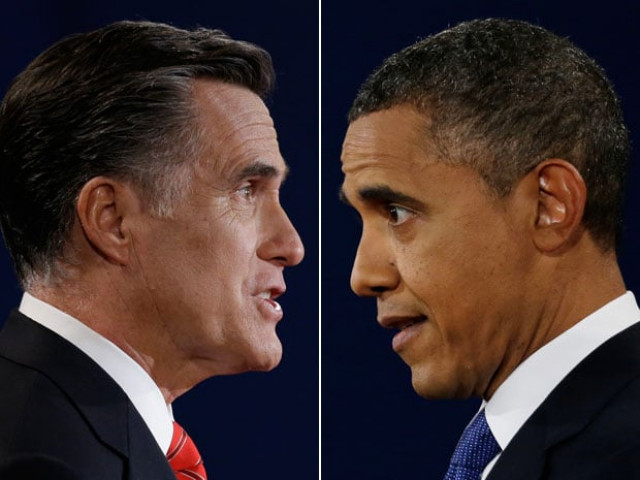
With just a few days left in the tight battle for the White House, the debate within the US continues to be dominated by domestic politics – the state of the economy, unemployment, the size of the US debt, abortion and women’s rights — so much so that even the foreign policy debate between US President Barack Obama and Republican candidate Mitt Romney veered into domestic issues.
When it comes to foreign policy, both the candidates and the media have primarily focused on the attack on the US consulate in Benghazi. Be that as it may, the US relationship with Pakistan remains central to the future of Afghanistan, a central pillar of current US policy. Republican presidential candidate Romney took a firm stand on Pakistan during the debate, saying it was not time “to divorce a nation (Pakistan) on Earth that has 100 nuclear weapons and is on the way to double that at some point.”
The White House hopeful, however, endorsed drone strikes, saying that he supports the Obama administration’s policy on this key issue.
Ties between the US and Pakistan during the Obama administration have been rocky to say the least, marred by a series of events that threatened to derail the relationship altogether. The administration’s drone strike campaign became the centerpiece of its strategy in Pakistan, breeding anti-American sentiment in the country, while the Raymond Davis affair, Abbottabad raid and the Salala strike were among the countless unpleasant incidents that brought ties to a standstill earlier this year.
Shamila Chaudhry, an analyst at the Eurasia Group and former director for Pakistan and Afghanistan on the White House National Security Council, says that while President Obama’s accomplishment on decimating and dismantling al Qaeda in the region has been significant, for foreign policy aficionados the heavy emphasis on counterterrorism in the foreign policy arena has been a disappointment.
“Many think that the pursuit of counterterrorism objectives has been at the cost of the relationship, and I think that’s true to a certain extent. But I don’t think the president would have done anything differently or could have done. He had a very clear mandate at the beginning of his administration to clearly delineate the Pakistan policy. We should all remember that before Obama started, the US-Pakistan relationship was a very cloak and dagger relationship.
“Everything happened behind the scene; it was between individuals and personalities, between President Bush and President Musharraf. What he [President Obama] did was take that policy out of the darkness with a bluntness that no one expected. And I think that was disappointing to many but I think it had to be done.”
Meanwhile, former ambassador Touqir Hussain, currently a senior visiting fellow at Johns Hopkins University’s School of Advanced International Studies, says that trouble-free relations are impossible with the US fighting two separate wars in the region, referring to the war in Afghanistan and the broader war on terrorism.
“No ally will have a trouble-free relationship, especially when it is a junior partner, and there’s, for example, so much anti-Americanism.
“The Obama administration intensified the campaign in Afghanistan, which led to increased pressure on Pakistan … The war hasn’t been lost, but they haven’t been successful, so now they want a safe interval so that they don’t have to have a reversal,” said Hussain, adding that there had been a dramatic shift in the relationship between the two countries from the time when the US only considered Pakistan as a client state.
“Their approach has been that they give aid to the leaders, so that they keep people happy. And then we [the US] can get them to do anything for us, good or bad. That time has passed.”
He added that, while the next US president should keep in mind its ally’s interests, Islamabad needed to reassess its relationship with the US.
“Washington should not define the interests of Pakistan.”
Shamila, however, believed that, whether it is a Romney administration or another Obama administration, one should not expect a pendulum swing in terms of policy changes.
“The policy and relationship is going through a transition in the political establishment of the US, and I think the same thing is happening in Pakistan and that’s how we can rationalise a lot of the disappointment in Pakistan and how many Pakistanis feel that Obama hasn’t performed in defending Pakistan’s interests,” Shamila added.
(Read: More of the same)
Published in The Express Tribune, November 3rd, 2012.


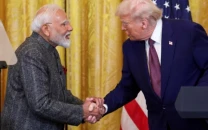
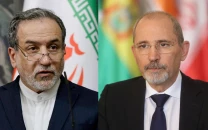

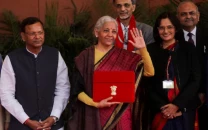
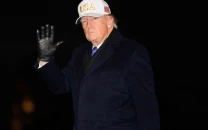












COMMENTS
Comments are moderated and generally will be posted if they are on-topic and not abusive.
For more information, please see our Comments FAQ